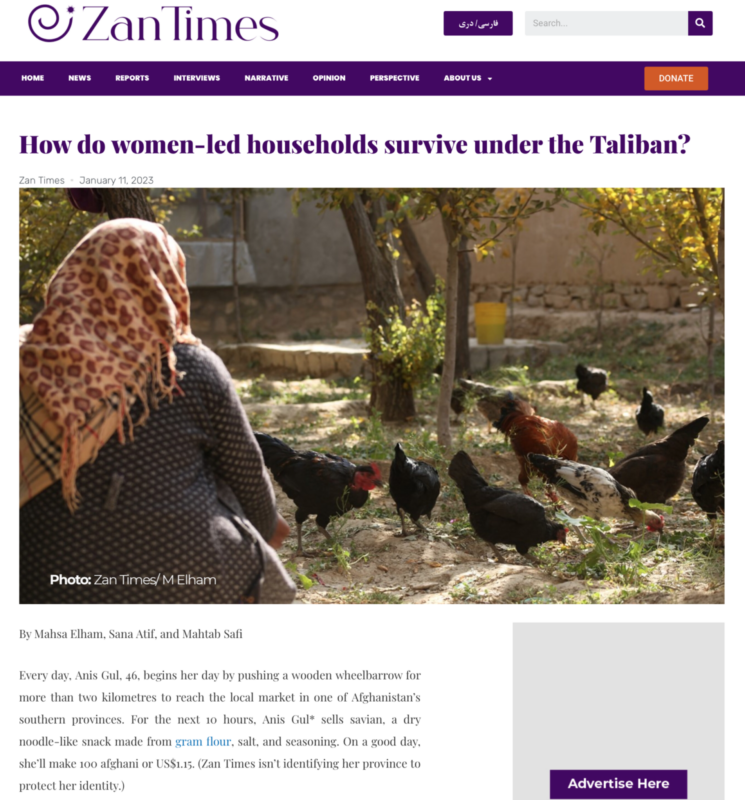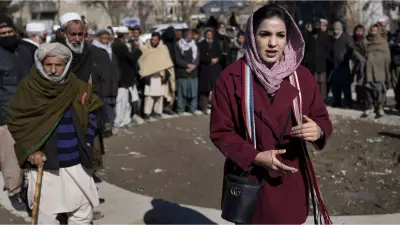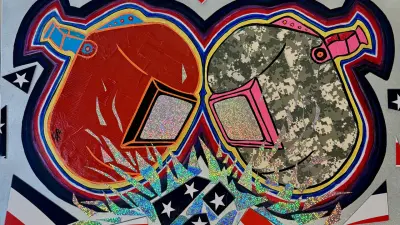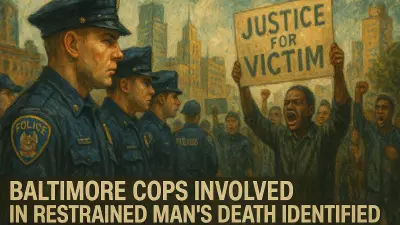TORONTO — I can’t stop thinking about August. Not any August, but August 2021. The one that changed my understanding of history. Now, my memories of the past are divided into before and after that fateful August.

Before, I had a normal life. I was a PhD student with hope and passion for the future, the one I wanted to build. Secretly, I was dreaming of becoming a professor. I wanted to teach in Kabul University’s newly formed department of Gender and Women’s studies. I wanted to teach history — history of women in Afghanistan. I wanted to have a class on feminism history in Afghanistan and to find our roots.
But then, August 2021 came. And now, I am no longer that energetic student who wanted to teach history. I guess, now, I am more into writing history as it happens. Not as a historian, but as a journalist.
Now, I am the editor-in-chief of Zan Times, a newly launched women-led newsroom that covers human rights violations in Afghanistan. I am a woman journalist from Afghanistan. That makes me a member of an endangered species. The Taliban have attacked media freedom across the board, but they particularly despise women journalists. In the first four months of Taliban rule, four out of five women journalists in Afghanistan lost their jobs.
In every story, I struggle with the question not only of how to protect our sources, but also how to protect our journalists. Too often, we are forced to decide we cannot run stories when we know we cannot protect people. Our journalists working inside Afghanistan cannot disclose what they do. They work in isolation because, for safety reasons, I cannot let them know who their colleagues are. They usually have to do their work without even being able to leave their homes. They all have to use fake names when we publish their work.

They report in an environment where the people they need to interview have often been threatened with death if they discuss what they have seen or experienced. The media and journalists play such an important role in exposing human rights abuses, but when they are targeted themselves, how can they continue to do their jobs?
There is no security or protection for journalists, and particularly for female journalists in Afghanistan. At Zan Times, we recently spoke with 32 women journalists in Afghanistan. They told us about security threats, harassment, and constant fear they face for doing their job.
“Seventeen out of 32 women journalists who spoke to Zan Times lost their jobs after the Taliban took over (six were fired because they were women, six lost their jobs due to the closures of their media organizations, while another five quit due to restrictions and security issues); while the other 15 have continued their work, despite facing gender discrimination, sexual harassment, security threats, pressure to abandon their jobs, unpaid work, lack of access to information, Taliban censorship, and the forced mandatory hijab rules” we reported.
Women and girls are the main targets of the Taliban’s abuses, but without female journalists we are missing most of the picture. We need their investigations, their work, their voices. That’s why the Taliban are systematically erasing them.
And that is why we are trying to resist it by enabling women journalists to continue their work.







